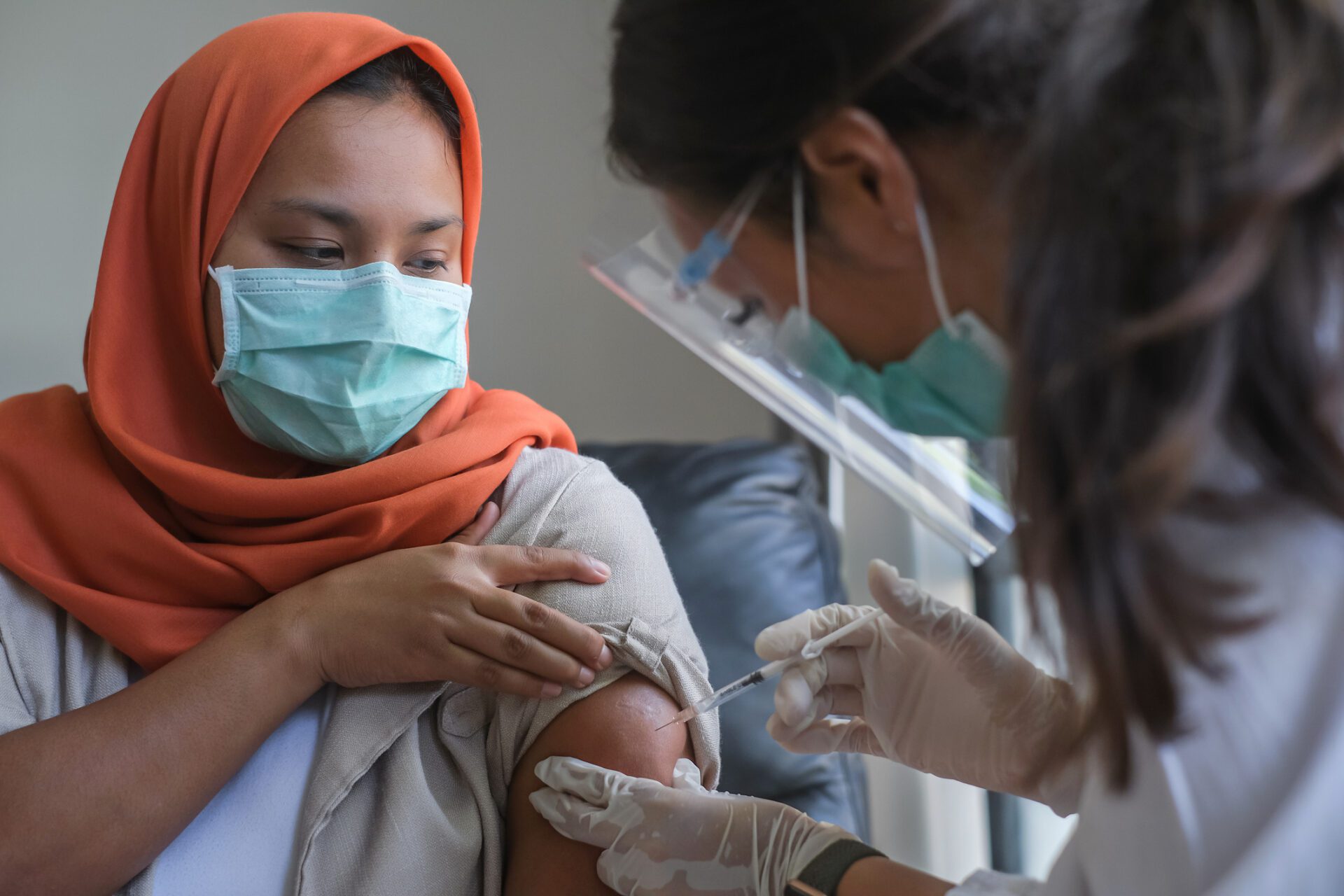The medical evidence shows that people who are malnourished are far more susceptible to disease. Hunger weakens the human immune system. Young children with the most dangerous form of malnutrition, Severe Acute Malnutrition, are nine times as likely to die as healthy children because their bodies are less able to fight off infection.
In Bread for the World’s early years, the 1970s and 1980s, members urged Congress to approve funding for childhood vaccinations. We joined with global, national, and local partners toward the goal of universal childhood immunization—and advocates helped win significant progress. In 1974, fewer than 5 percent of the world’s children had received immunizations by their first birthday. By 1985, this had increased tenfold, to 50 percent.
Childhood vaccination programs continue to save countless lives each year, and Bread continues to emphasize their essential role in protecting children with weakened immune systems. One of our more recent advocacy “asks” was a call for effective “catch-up strategies” for young children now at risk because they missed vaccines due to the COVID-19 pandemic.
The pandemic damaged the systems that countries around the world had put in place to ensure that their populations received the protections of immunization. In November 2022, then-director of the U.S. Centers for Disease Control Dr. Rochelle Walensky said that the record number of children who missed essential doses of vaccine against measles was a sign of “the profound damage immunization systems have sustained during the COVID-19 pandemic.”
Although vaccinations for adults receive considerably less attention, they save lives as well. In September 2023, the Forum Network of the Organization for Economic Cooperation and Development (OECD) reported that 100 million doses of vaccines for adults were missed in 2021 and 2022 alone. The pandemic reversed what had been steady progress on vaccinations for adults. From a high of 400 million doses annually, the global total fell to 363 million in 2021 and 351 million in 2022.
Michael Hodin, CEO of the Global Council on Aging, calls adult vaccination “one of our most important and cost-effective public health measures.” Vaccines protect people from potentially deadly diseases such as influenza, shingles, pneumonia, and Respiratory Syncytial Virus (RSV). These diseases have far-reaching impacts. Not only do they affect the long-term health and quality of life of patients, but they can cause immense losses to family members, as well as less-recognized costs such as fewer available hospital beds and lost productivity.
We typically think of adult vaccinations as protecting elders. This is in fact more important than ever, with a projected global population of more than 1.4 billion people over age 60 by 2030. Vaccines play a key role for pregnant women as well. Even modest improvements, due to fewer illnesses, in the health of women suffering from malnutrition can reduce their considerable risks during childbirth.
But global and national leaders must also recognize the necessity of protecting the general adult population. This seems like something that “everyone knows,” but leaders need only to look to the not-so-distant past for a very sharp reminder. In the 1990s and early 2000s, a fatal disease not preventable by vaccine, HIV/AIDS, killed millions of people in dozens of African countries. Those who died were primarily younger adults in their prime parenting and working years.
Even beyond shock and grief, the impacts on children and elders left behind were devastating. Grandparents no longer able to do the heavy agricultural labor they had done for most of their lives suddenly found themselves trying to feed and care for several orphaned grandchildren. So many adults died in some countries that there were even so-called “child-headed households,” with children in their early teens—occasionally as young as 9—struggling to grow crops and look after two or three younger siblings.
In the early years of the AIDS pandemic, before the emergence of antiretroviral medications, healthcare providers were helpless to prevent the illness and then death of significant shares of a country’s parents. But such profound losses can and should be avoided when it comes to vaccine-preventable diseases.
As the OECD Forum Network notes, “We know progress is possible – in fact, COVID-19 vaccination itself proves the point, as more than 70 percent of the world’s population has received a dose.”
The world will continue to see the impacts of the pandemic on global health for years to come—from missed cancer screenings, to postponed surgeries, to deaths from vaccine-preventable diseases. Catching up on immunizations is a straightforward way to prevent the pandemic from imposing even more costs—avoidable costs—on human lives and health.
Michele Learner is managing editor, Policy and Research Institute, with Bread for the World.



